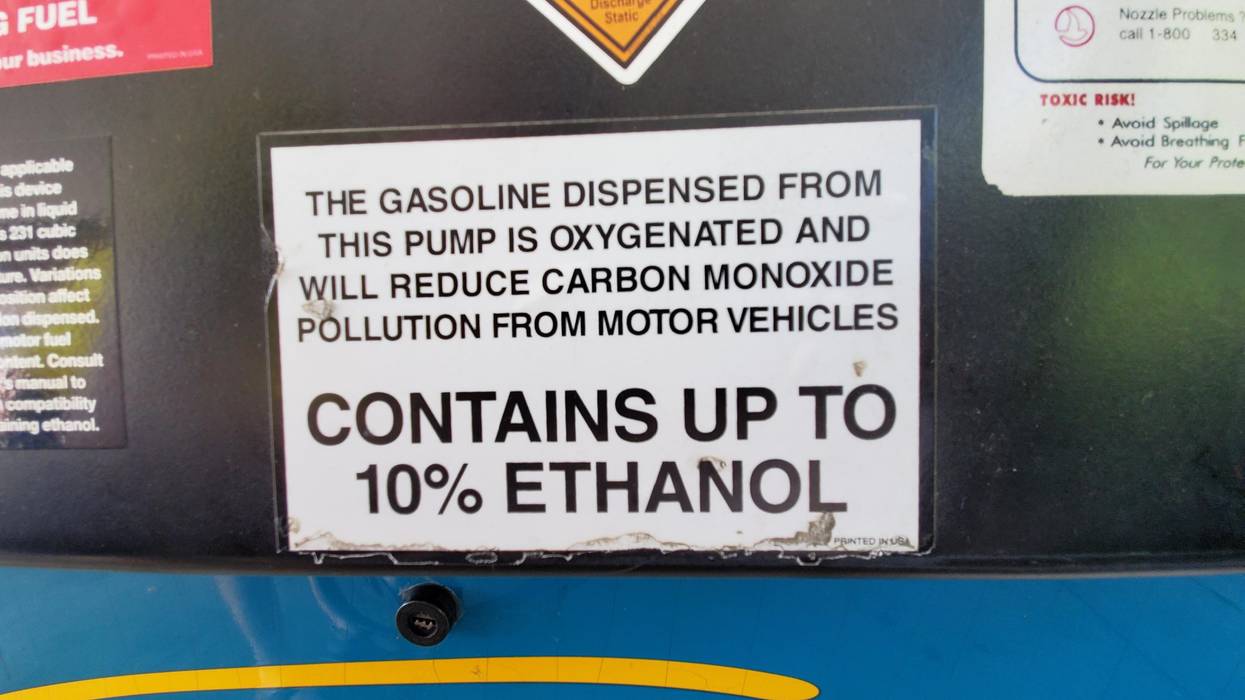There's nothing complicated about the effects of turning crops into biofuel. If food is used to power cars or generate electricity or heat homes, either it must be snatched from human mouths, or ecosystems must be snatched from the planet's surface, as arable lands expand to accommodate the extra demand. But governments and the industries that they favor obscure this obvious truth. They distract and confuse us about an evidently false solution to climate breakdown.
From inception, the incentives and rules promoting biofuels on both sides of the Atlantic had little to do with saving the planet and everything to do with political expediency. Angela Merkel pushed for an EU biofuels mandate as a means of avoiding stronger fuel economy standards for German motor manufacturers. In the US, they have long been used to prop up the price of grain and provide farmers with a guaranteed market. That's why the Biden administration, as the midterm elections loom, remains committed to this cruelty.
As the investigative group Transport & Environment shows, the land used to grow the biofuels consumed in Europe covers 14m hectares (35m acres): an area larger than Greece. Of the soy oil consumed in the European Union, 32% is eaten by cars and trucks. They devour 50% of all the palm oil used in the EU and 58% of the rapeseed oil. Altogether, 18% of the world's vegetable oil is turned into biodiesel, and 10% of the world's grains are transformed into ethanol, to mix with petrol.
A new report by Green Alliance, an independent think tank, shows that the food used by the UK alone for biofuels could feed 3.5 million people. If biofuel production ceased worldwide, according to one estimate, the saved crops could feed 1.9 billion human beings. The only consistent and reliable outcome of this technology is hunger.
It's not just a matter of the upward pressure on food prices, great as this is. Biofuel markets also provide a major incentive for land grabbing from small farmers and indigenous people. Since 2000, 10m hectares of Africa's land, often the best land, has been bought or seized by sovereign wealth funds, corporations, and private investors. They replace food production for local people with "flex crops": commodities such as soya and maize that can be switched between markets for food, animal feed, or biofuel, depending on which prices are strongest. Land grabbing is a major cause of destitution and hunger.
As biofuels raise demand for land, rainforests, marshes, and savannahs in Indonesia, Malaysia, Brazil, and Africa are cleared. There's a limit to how much we can eat. There's no limit to how much we can burn.
All the major crop sources of biodiesel have a higher climate impact than the fossil fuels they replace. Rapeseed oil causes 1.2 times as much global heating, soy oil twice as much, palm oil three times. The same goes for ethanol made from wheat. Yet this consideration hasn't stopped the reopening of a bioethanol plant in Hull, in response to government incentives, which will use the wheat grown on 130,000 hectares of land.
Whenever a new biofuel market is launched, we are told it will run on waste. A recent example is BP's claim that planes will be fueled by "sustainable feedstocks such as used cooking oil and household waste." Invariably, as soon as the market develops, dedicated crops are grown to supply it. Already, all the waste that can realistically be extracted is being used, yet it accounts for just 17% of the EU's biodiesel and scarcely any bioethanol. Even these figures, according to an industry whistleblower who contacted me, are stretched: as waste palm oil, thanks to the demand for "green" biodiesel, can be more valuable than new oil, fresh supplies are allegedly slipped into the waste stream.
Far from heeding the concerns, however, last year the UK government, "responding to industry feedback", increased its target for the amount of biofuel used in surface transport. Worse, it justifies continued airport expansion with the claim that planes will soon be able to use "sustainable" fuels. In practice this means biofuel, as no other "sustainable" source is likely to power mass air travel in the medium term. But there is no means of flying more than a tiny number of planes on this fuel that does not involve both global starvation and ecological catastrophe.
Now the energy company Ecotricity has relaunched a plan to turn 6.4m hectares of the UK - over one-quarter of our land area - into feedstock for biogas plants. Ecotricity's founder, Dale Vince, has made the astonishing claim that "it's a plan with no downsides." But, as critics have been trying to point out to him, this scheme would incur enormous ecological, carbon, and food opportunity costs. In other words, the land could either be used for growing food; or, if it ceased to be used for food production, would draw down more carbon and harbor more wildlife if it were rewilded. Biogas production has also triggered severe pollution events, caused by spreading the residue back onto the land, which is a crucial part of Ecotricity's plan, or by leaks and ruptures. It's the worst land-use proposal I've ever seen in the UK.
When I challenged Vince about these issues, he told me: "We're not the big bad corporate. We're environmentalists that get things done, and often enough when we start something new we upset the settled view of things."
But we can't use such fixes to solve our climate crisis. To leave fossil fuels in the ground, we should change our energy system: our need to travel, our modes of transport, the fuel economy of our homes, and the means by which we heat them. Modern biofuels, used at scale, are no more sustainable than an older variety: whale oil. And burning food is the definition of decadence.


